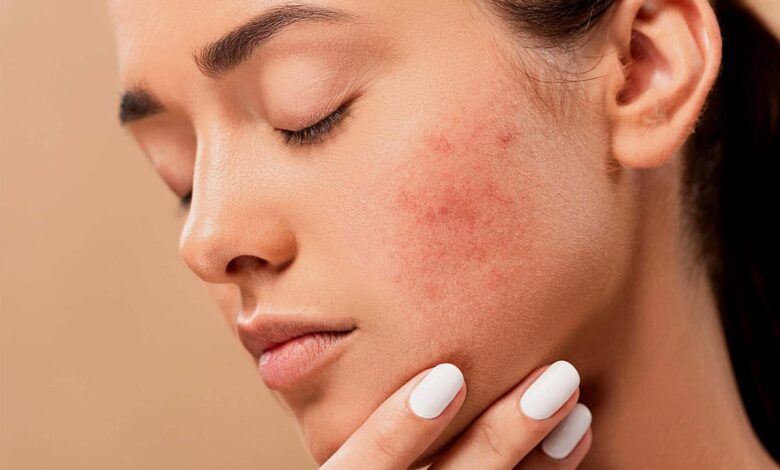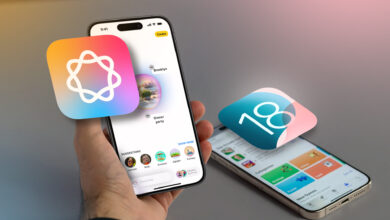
Social networks are full of questionable and controversial advice. But one of the newly promoted skin care solutions is very worrying. Some content creators on Tik Tok claim that tanning or using a tanning bed helps clear up acne.
While sunlight and UV rays have long been used to treat some skin conditions, evidence shows that these techniques are not effective in treating acne, and the harms of overexposure to UV rays far outweigh the benefits you may see in your skin’s appearance. .
What is light therapy?
Table of Contents
Phototherapy is a type of medical treatment that involves exposing the skin to sunlight or ultraviolet rays in a controlled environment. This method is used to treat diseases such as psoriasis and eczema that do not respond to other treatments. Research shows that light therapy can help reduce inflammation and suppress the skin’s immune response, both of which are the main causes of these diseases.
It is important to note that light therapy is performed in a clinical setting where the amount of radiation applied to the skin is carefully controlled to minimize the harmful effects of UV exposure. In addition, in order to reduce the risk of burns, primary treatments are also performed.
In the case of acne, there is little evidence that UV exposure is beneficial. A 2023 study of 19,939 participants found that exposure to relatively low levels of UVB (a type of invisible radiation emitted from the sun) for about an hour a day was associated with a reduced risk of moderate to severe acne in young adults. But this study had many limitations.
Currently, the most effective acne treatments are over-the-counter or prescription medications.
In the mentioned study, the exact amount of UV rays that the participants were exposed to was not measured directly, but based on the geographic location data and weather data, the amount of sunlight exposure of the participants was estimated. This study also did not consider the negative consequences of sun exposure.
Studies on human skin cells have also shown some possible benefits of UVB exposure; including its possible effect in killing Propionibacterium acnes, which is thought to be the cause of acne. But these advantages have only been shown in cells and have not been replicated in human studies. Most of these studies also concluded that the beneficial effects are likely to be small and not sufficient for therapeutic use, especially considering the negative side effects of UV rays.
A 2023 review of all studies of sun exposure and acne conducted between 1992 and 2022 found that UV exposure is unlikely to improve acne symptoms, and in some cases may even improve it. make it worse Exposure to UVB can activate immune cells. This exacerbates the inflammation caused by acne and increases oil production in the skin, which is a known risk factor for acne.
Dangers of sunburn
While there is no evidence to support that sunlight can cure acne, the disadvantages of sun exposure, such as an increased risk of skin cancer, are well known.
Even one sunburn with blisters in childhood or adolescence can double the risk of developing skin cancer later in life. The more frequent sunburns, the higher the risk of skin cancer. The reason is that exposure to ultraviolet rays damages the DNA of skin cells.
Exposure to ultraviolet rays is one of the most effective factors in premature aging of the skin. This radiation damages the skin’s collagen and elastin and can lead to skin sagging and wrinkles.
Take the following steps to protect yourself from the sun:
- Use a broad-spectrum sunscreen with an SPF of at least 30 and reapply every two hours or after swimming or sweating.
- If possible, stay in the shade especially during the peak hours of sunlight, i.e. 10 am to 4 pm.
- Wear protective clothing, including wide-brimmed hats and UV-blocking sunglasses.
read more
Acne treatment drugs
Severe acne can be treated with oral antibiotics that have an anti-inflammatory effect. The doctor can also prescribe isotretinoin, which is a synthetic derivative of vitamin A. This drug reduces fats in the skin, skin bumps and acne-causing bacteria in the skin. Isotretinoin is very effective in clearing acne lesions and most patients only need one course of use.
Even one severe sunburn can increase the risk of skin cancer
While the mentioned treatments are effective, concern about the side effects of the drug (for example, mood changes) has caused some acne sufferers to look for alternative treatments; But a recent study of more than 30,000 patients taking isotretinoin did not find a connection between this drug and mood changes and showed that this side effect is very rare.
It is important to note that people who have been prescribed acne medication should be careful when exposed to sunlight. Isotretinoin and tetracyclines (a class of antibiotics) can increase photosensitivity. In this situation, when the skin is exposed to sunlight, more damage occurs. One study reported that between 20 and 40 percent of acne patients who took one of the more common types of tetracycline developed photosensitivity.
It is important to use sunscreen when going out on sunny days. Not only does sunscreen protect your skin and reduce your risk of skin cancer, but using sunscreen can actually benefit people with acne by reducing inflammation and reducing the sensitivity of skin cells to light.
Currently, there are several effective and safe options for acne treatment. If you think your current treatment isn’t working, talk to your doctor before using the sun or tanning bed to treat your acne and putting yourself at risk.









